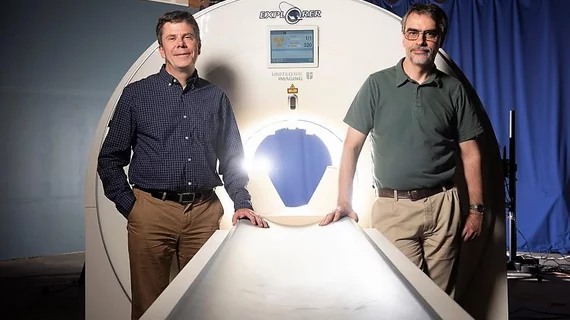Total-body PET/CT scanner granted FDA approval
The FDA has given clearance to Shanghai-based United Imaging Healthcare’s uExplorer, a total-body PET/CT scanner developed in collaboration with researchers from the University of California (UC), Davis.
The technology can capture three-dimensional (3D) images of the entire human body at one bed position and requires 40-times less radiation than current methods, according to a recent company press release.
United Imaging made its U.S. market debut in November at RSNA 2018 in Chicago, where Simon Cherry, PhD and Ramsey Badawi, PhD, of UC Davis, presented a prototype of the system and the first images taken by the device.
“The human images the uEXPLORER produces have been nothing short of astonishing, especially when one considers the very short acquisition times,” Jeffrey M. Bundy, PhD, Chief Executive Officer of United Imaging Healthcare Solutions, said in the release. “This device will bring us into completely new areas of discussion with our customers, as we jointly re-think the role of PET in the North American healthcare system.”
Researchers believe the uExplorer could reduce total-body scan times to just one minute and improve clinical research and overall care due to its ability to produce higher-quality PET scans.
The company also expects the technology will improve diagnostics, disease tracking progression and research into new treatments. The scanner, for example, could be used to better visualize cancer that has spread beyond a single tumor site, measure blood flow across the entire body and study inflammation, infections and immunological/metabolic disorders.
The unit is expected hit the U.S. market early this year, according to the release.

